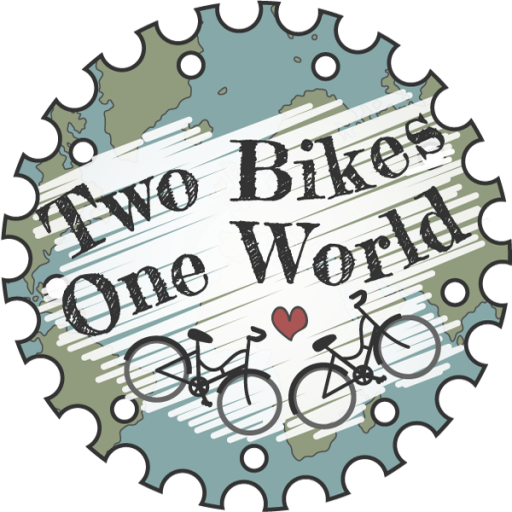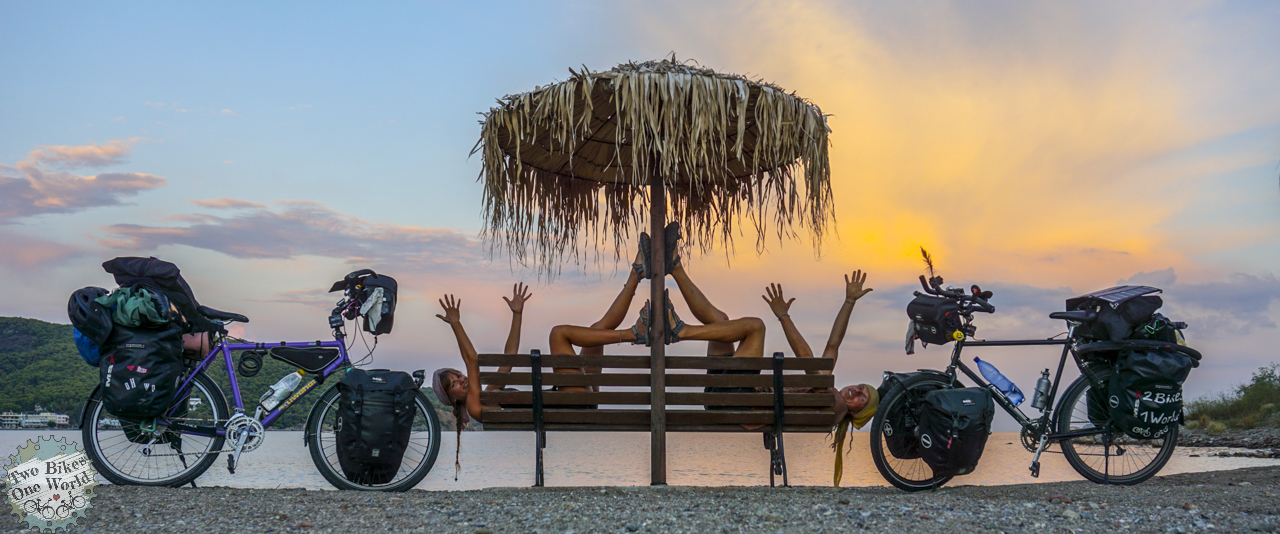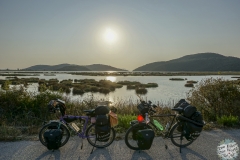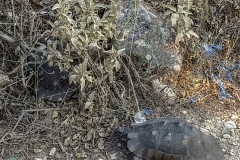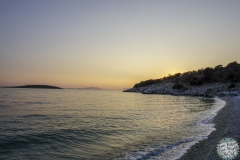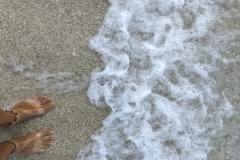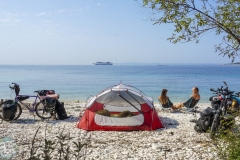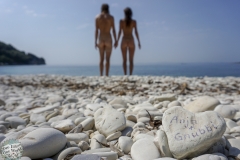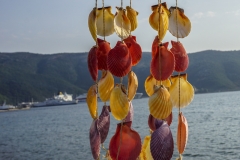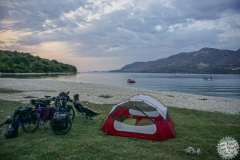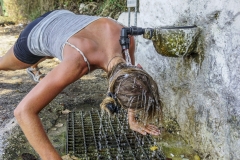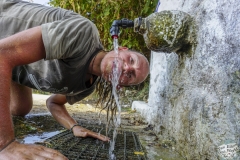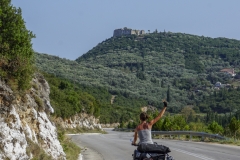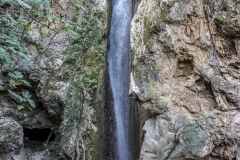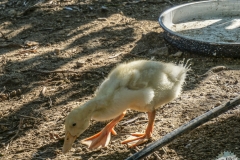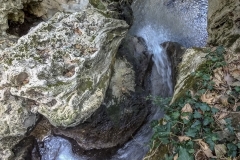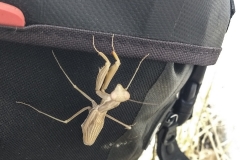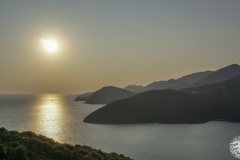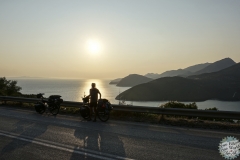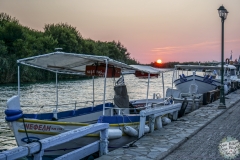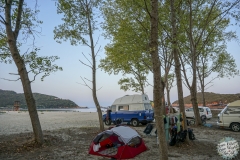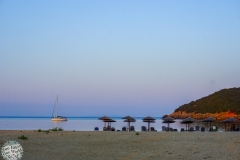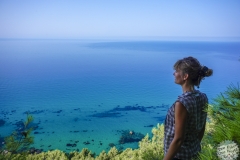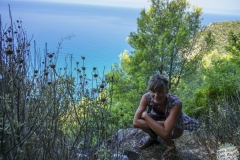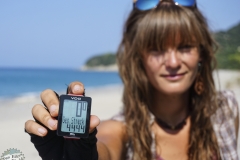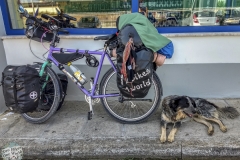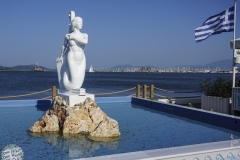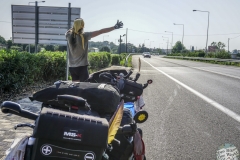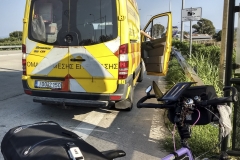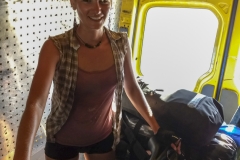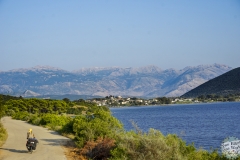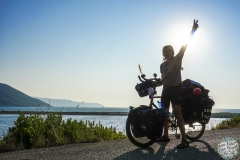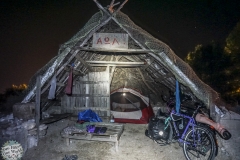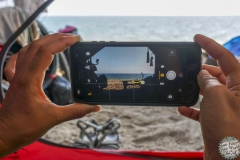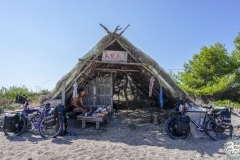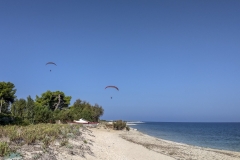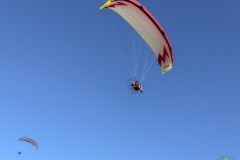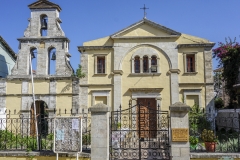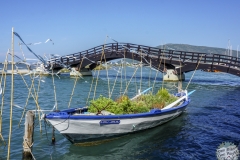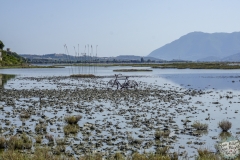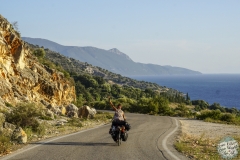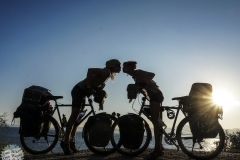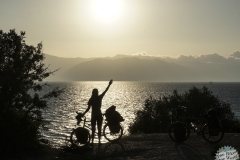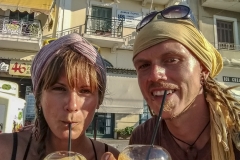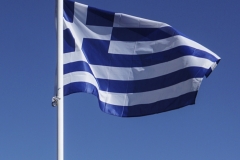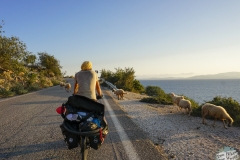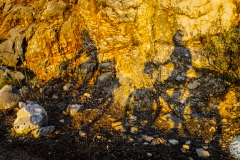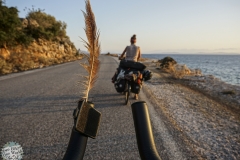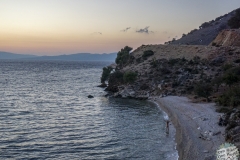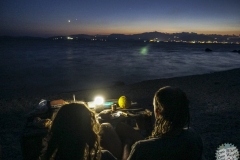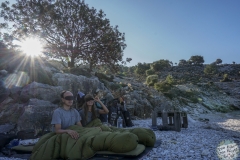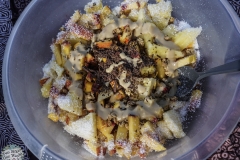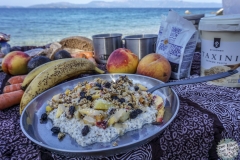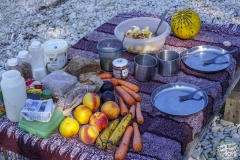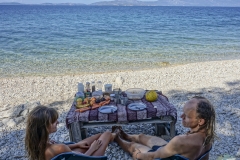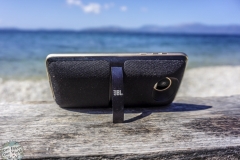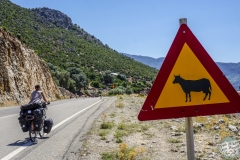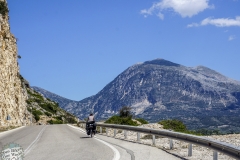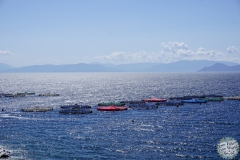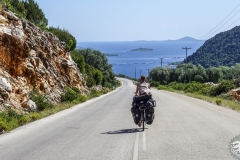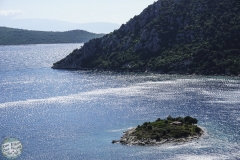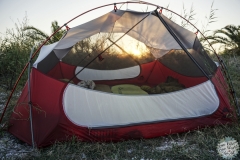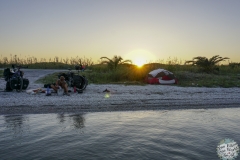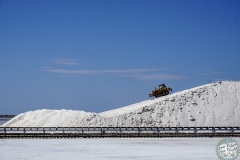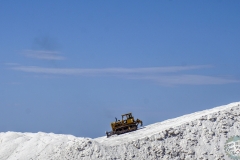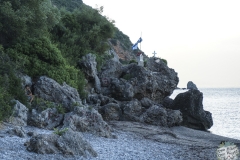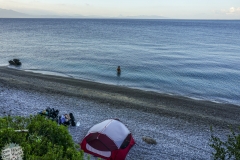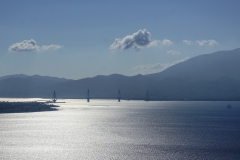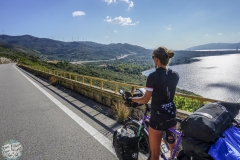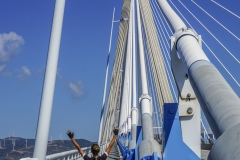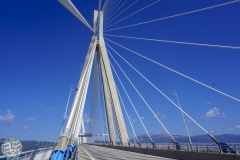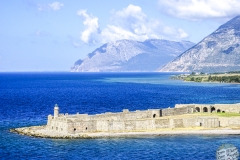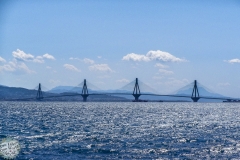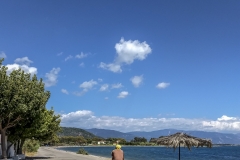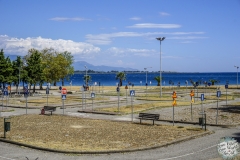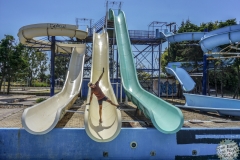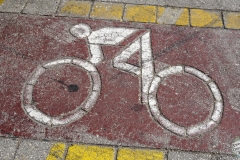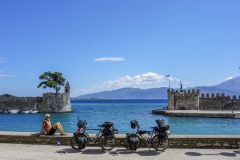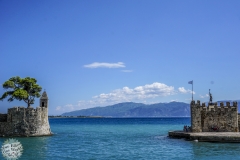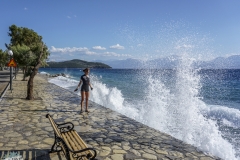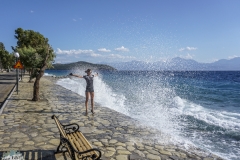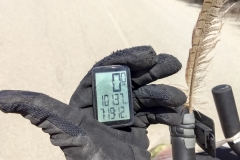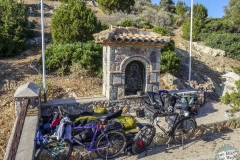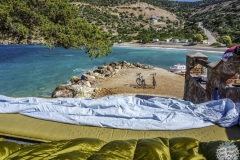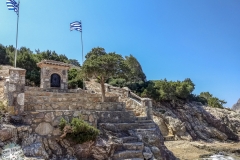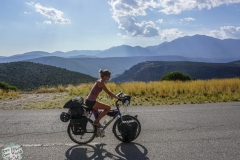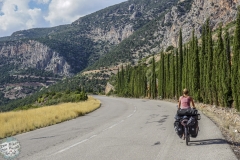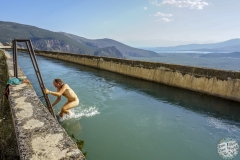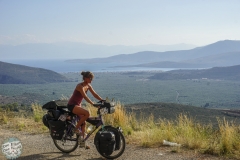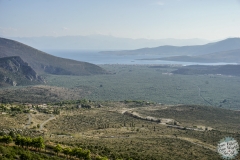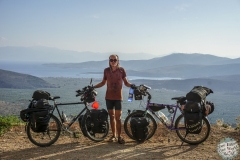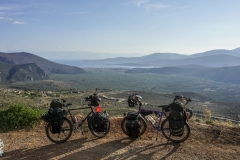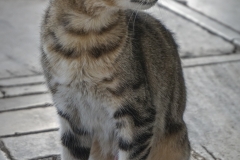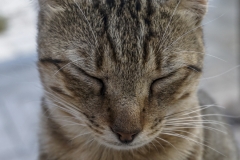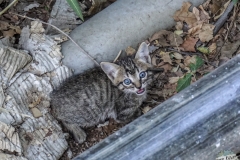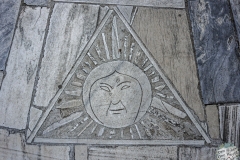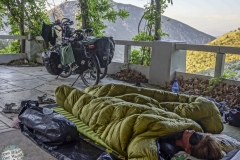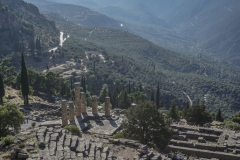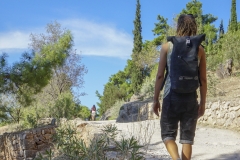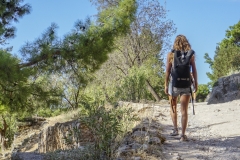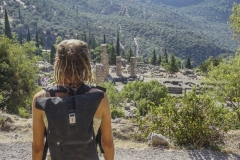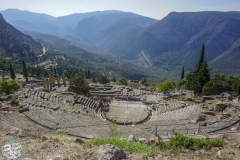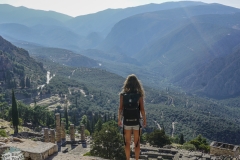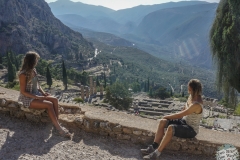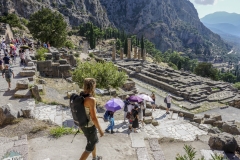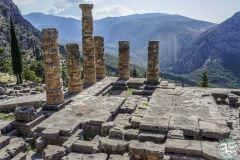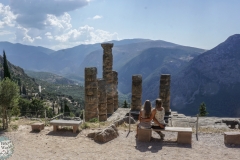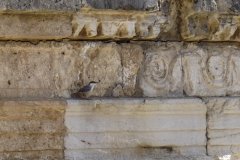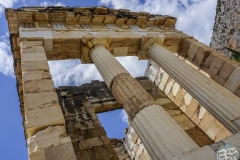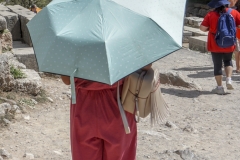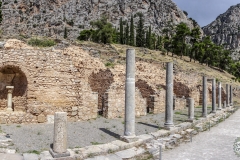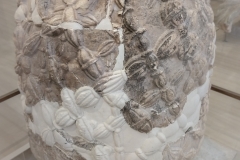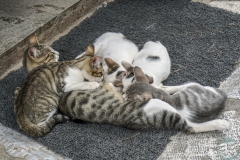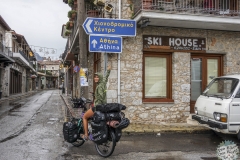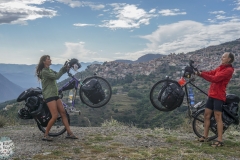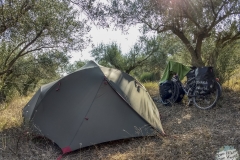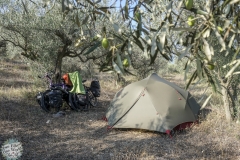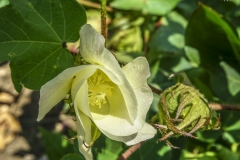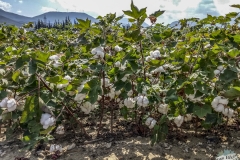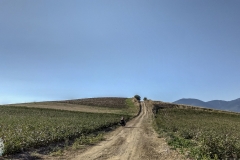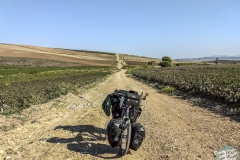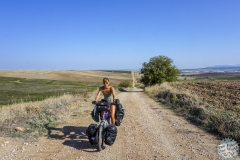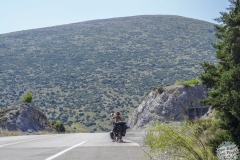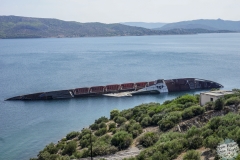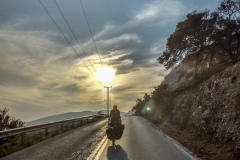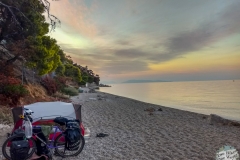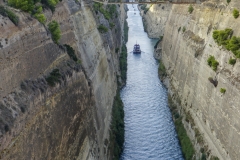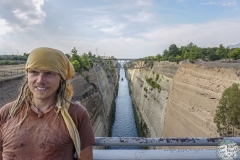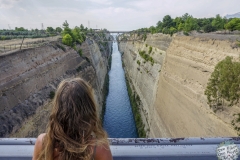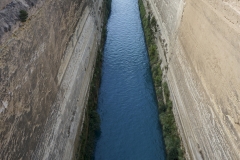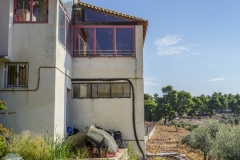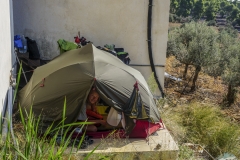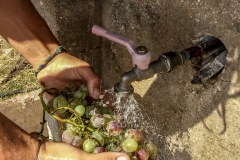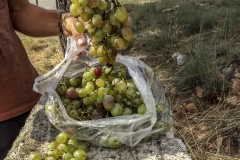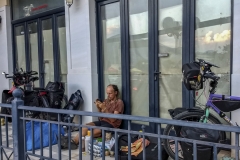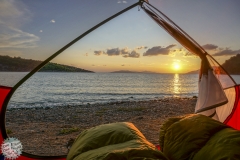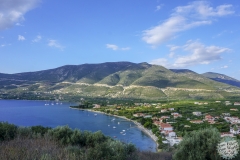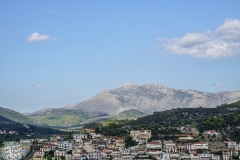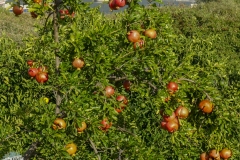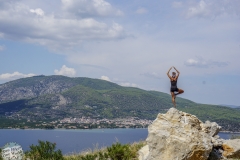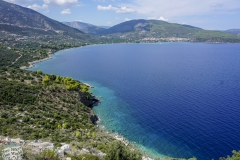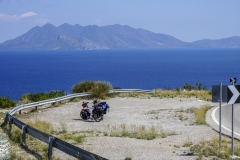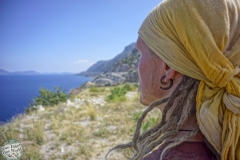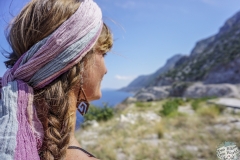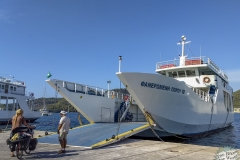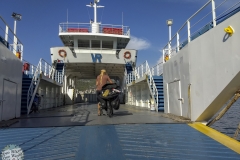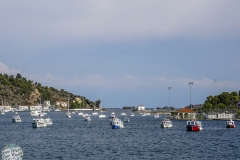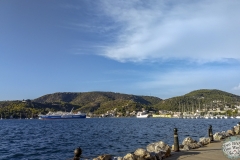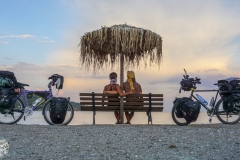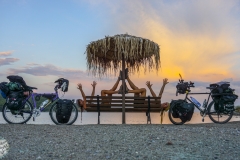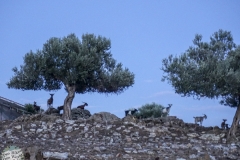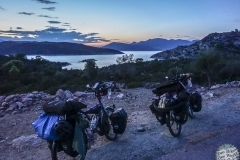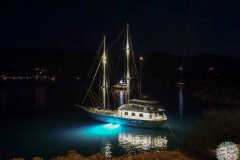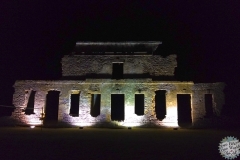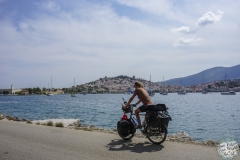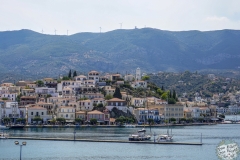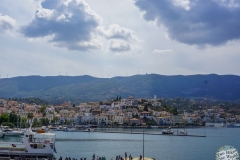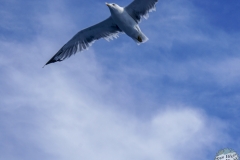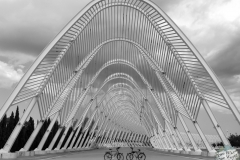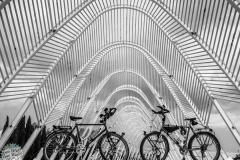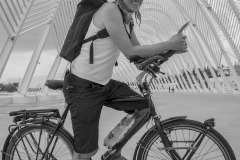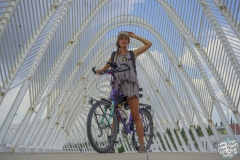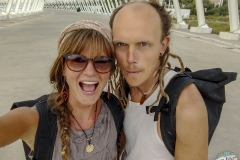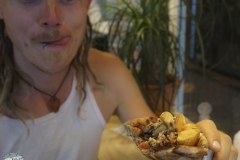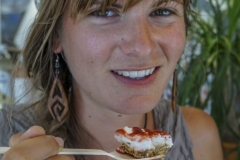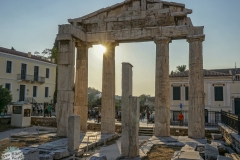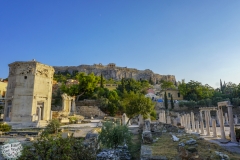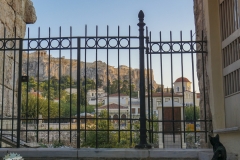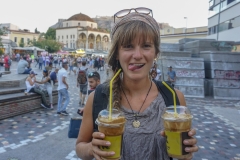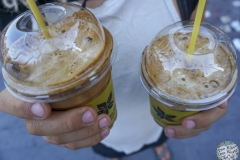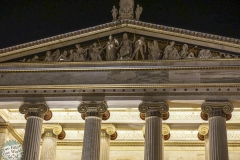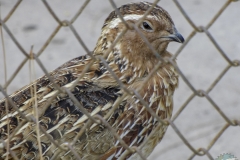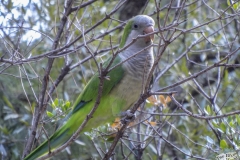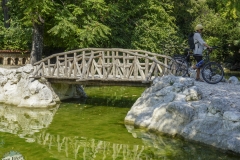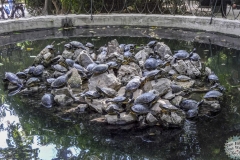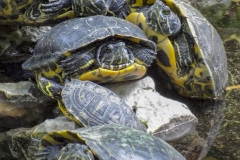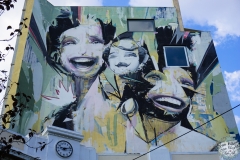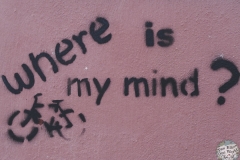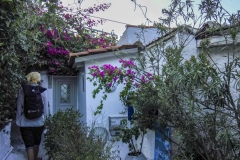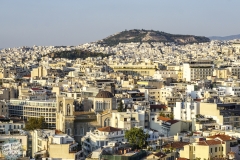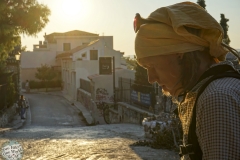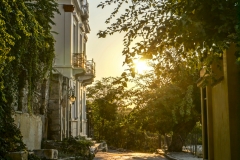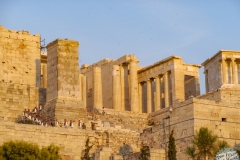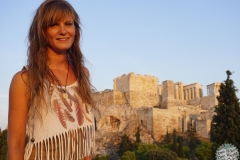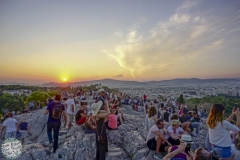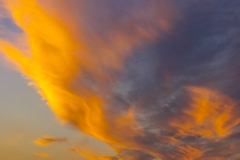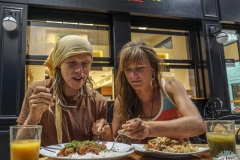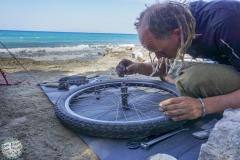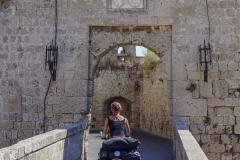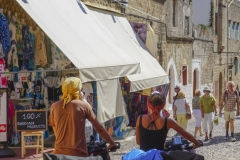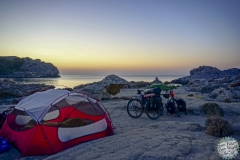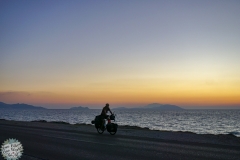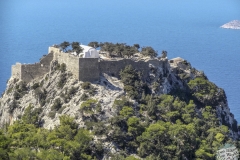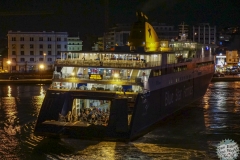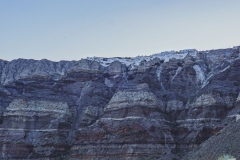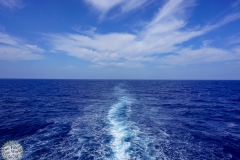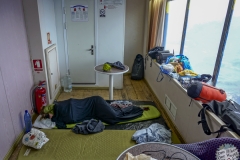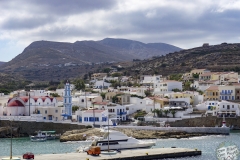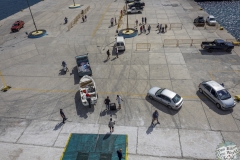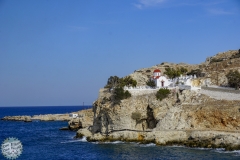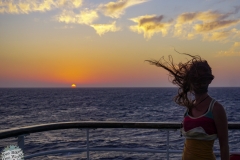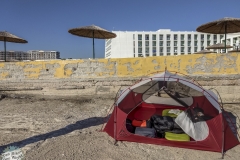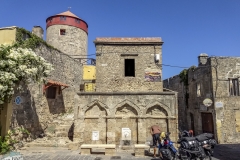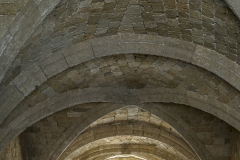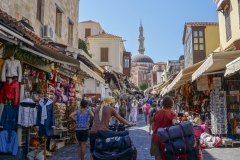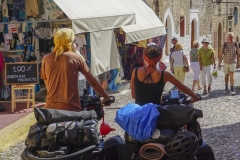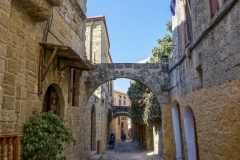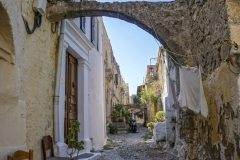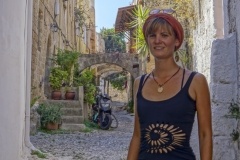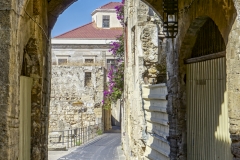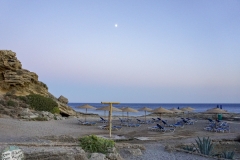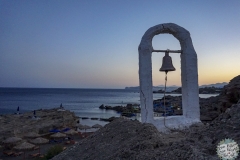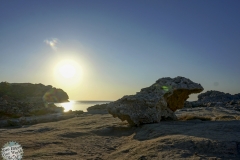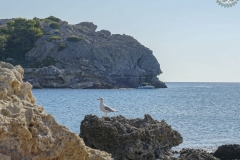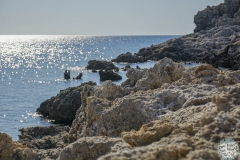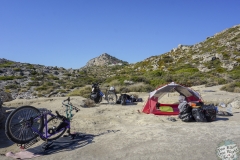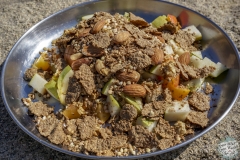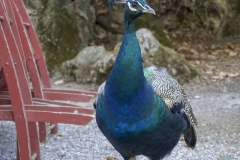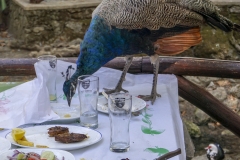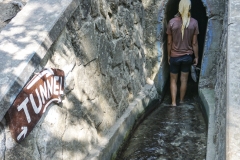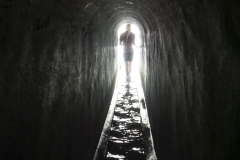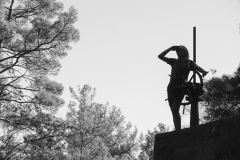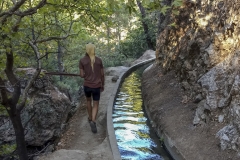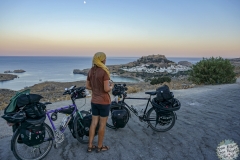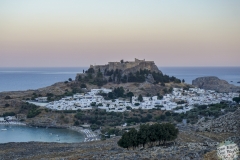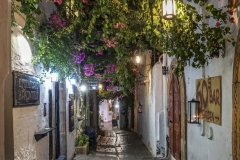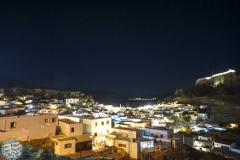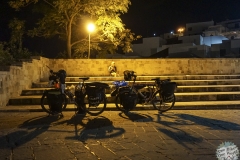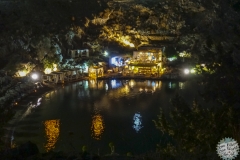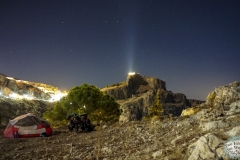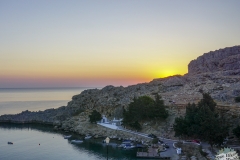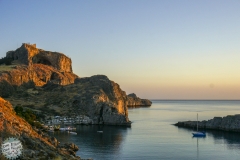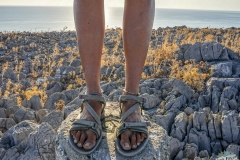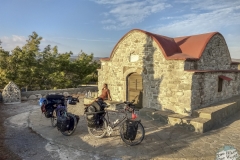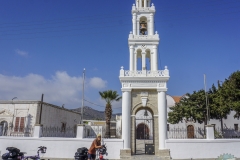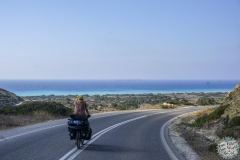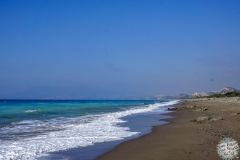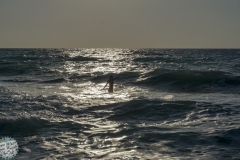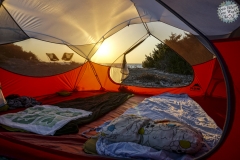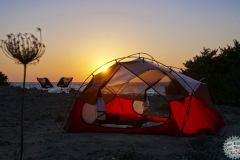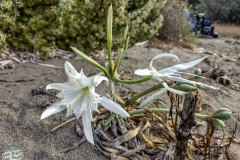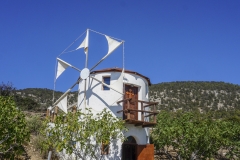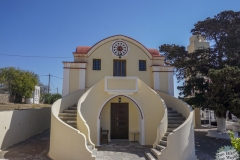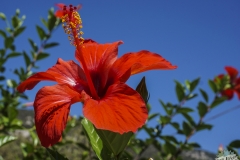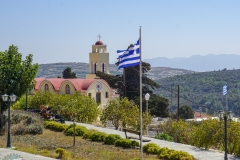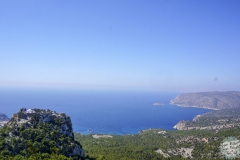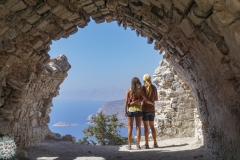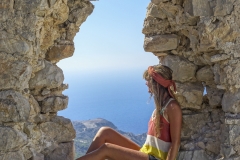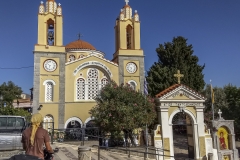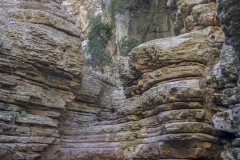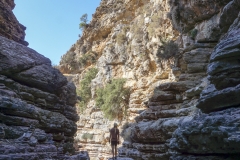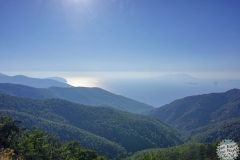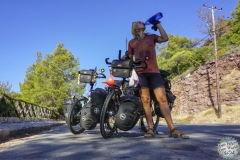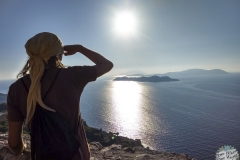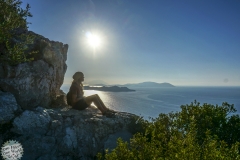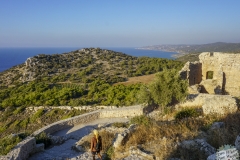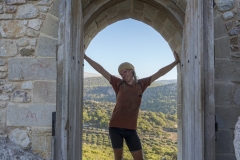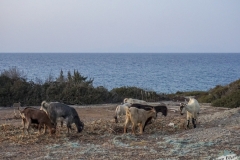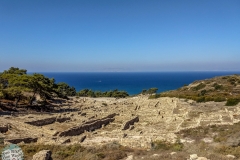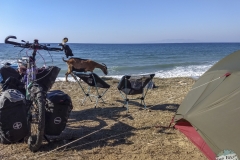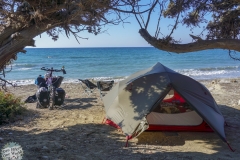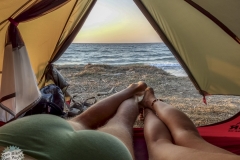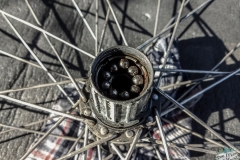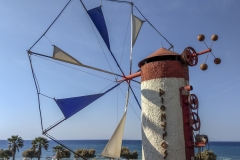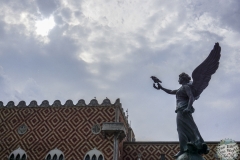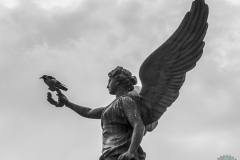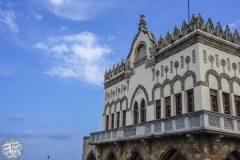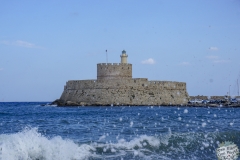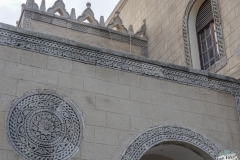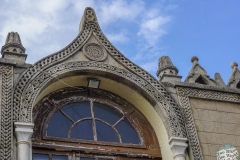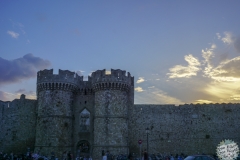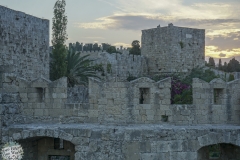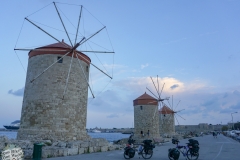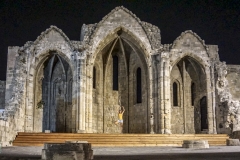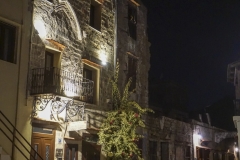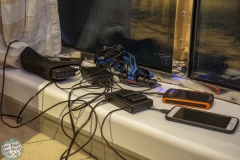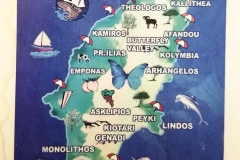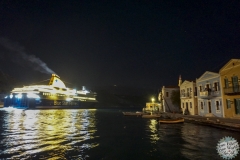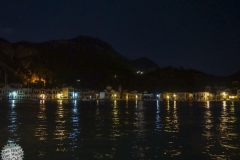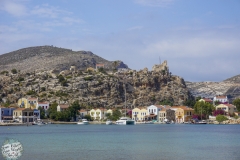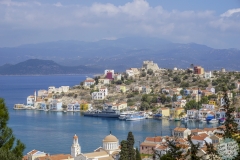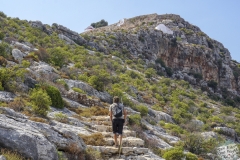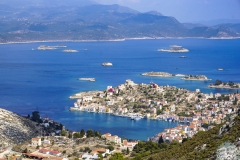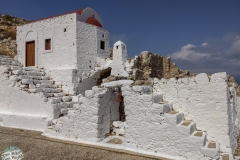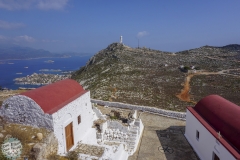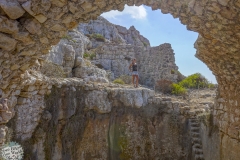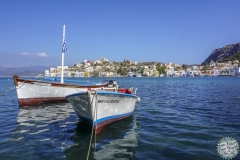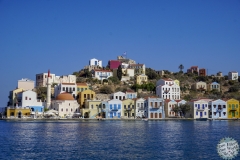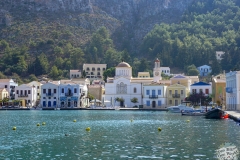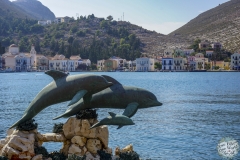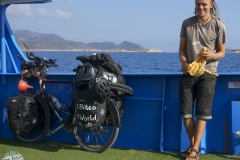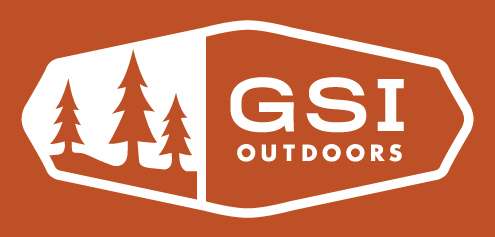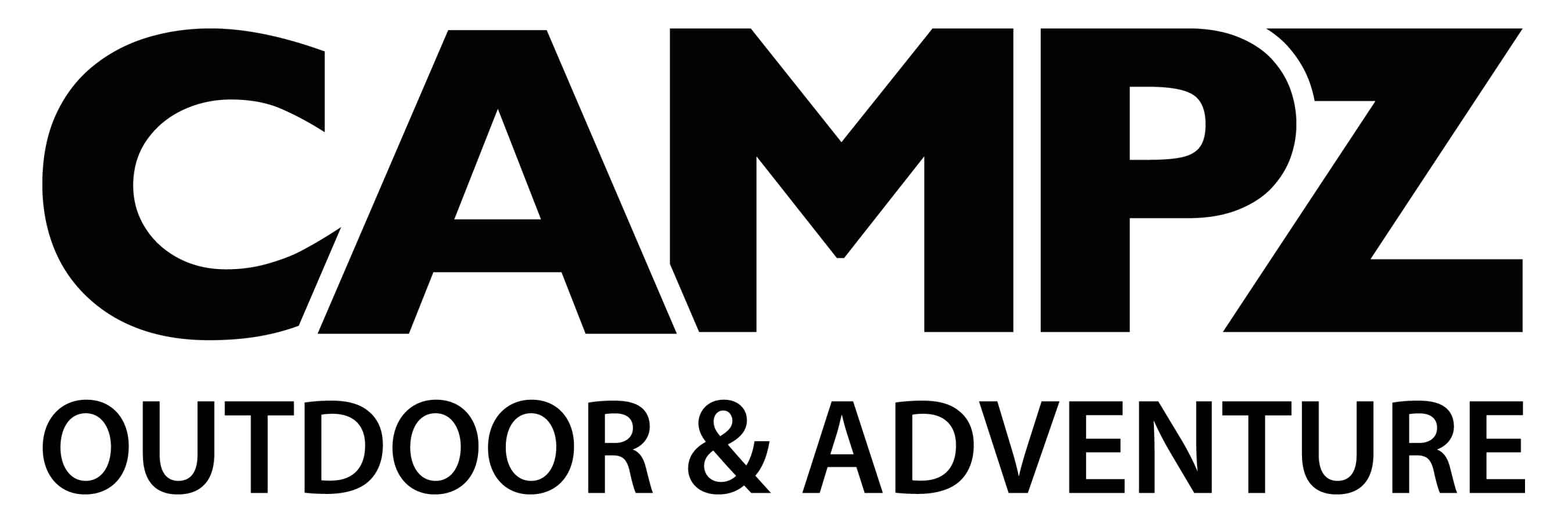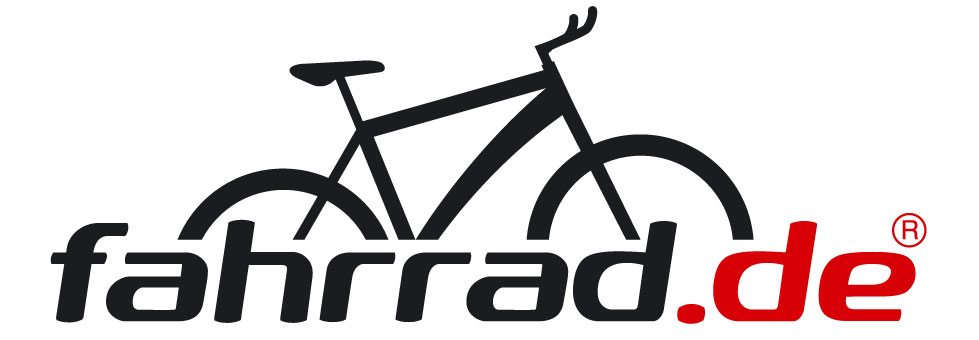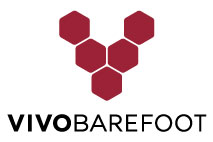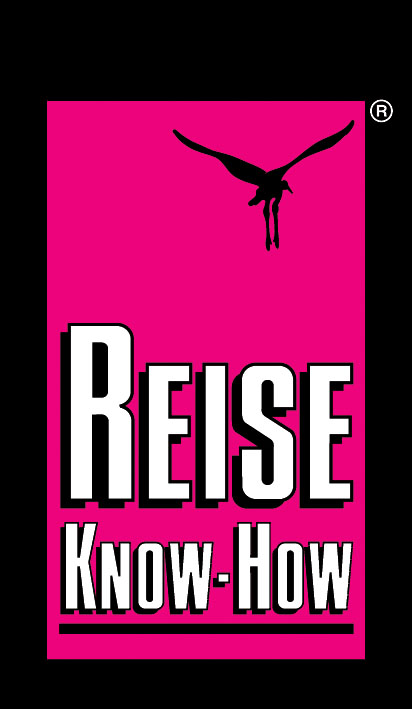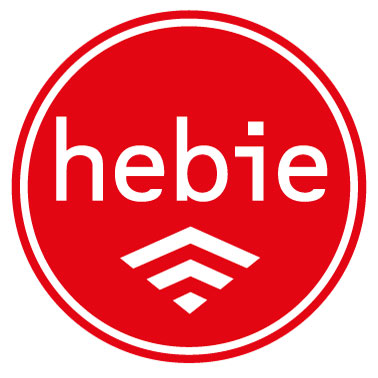The sun shines wonderfully warm in the afternoon on our sweaty skin from the ascent. The border guard hands us the passports back through the counter window and we are allowed to pass. After some impressive but also strenuous days, we leave Albania relieved and are very happy to discover Greece. Immediately you notice the EU funding of the roads and the wheels roll smoothly on the smooth asphalt downhill towards the sea. The mountain ranges around us are characterized by drought and barren vegetation. At the beginning of September the temperatures are still very warm, but the big waves of tourists have already moved from there.
A quick view of the Navi tells us several beaches, which are still manageable. Highly motivated, we pedal and cross endless citrus plantations. The oranges, mandarins, lemons and limes are still green, but already exude a wonderful aroma. Already on our first night are rewarded with a lonely beach. We hardly trust our eyes; in fact we have an extremely idyllic little beach just for ourselves. Until now, we assumed that this was a pure dream idea, which would only be conveyed in advertising. But Greece teaches us something better and spoils us from now on many days with lonely beaches. We don’t flare for long, take off all our stuff and immediately jump naked into the crystal clear, blue water. The next morning, these beaches don’t let us go so fast, so we often don’t continue until the early afternoon.
The road along the west coast of Greece almost always runs along the sea. It often leads 200 metres high, with steep cliffs to the sea, before falling back to sea level. Fortunately, however, all the climbs here are built in such a way that they are easy to cycle with fully packed touring bikes. The big yellow disc from the sky always laughs at us in this sun-drenched land. Since we both tend to be among the hotbloods, it can rarely be hot enough for us. All the sun and the high temperatures are very accommodating to us. Again and again we meet retired, German-speaking older men who drive their camper through the country or stand on one of the many empty beaches for free and just enjoy life. They often want to experience our history and give the best of us that we live their dream, but that they are now too old for such a thing, or that the right woman is missing. The culinary food selection in Greece comes entirely to our taste and finally we can again enjoy a wide variety of foods, thanks to a high prevalence of supermarkets in the country. Halfway down the west coast we come across the Ambrac Gulf in Preveza. An under-tunneled strait separates us from the opposite shore. Unfortunately, this 5 km long tunnel is closed to bicycles and in front of us would be the 150 km long circumnavigation of the Ambrac Gulf to circumnavigate this short stretch. What to do? Still, cycling seems a bit risky to us, but on 150 km of additional path we don’t really like it either; For this we just like the Ionian sea coast of Greece far too much. After a short search on the net, there seems to be a driving service from the tunnel safety service. One should simply wave into the surveillance camera. That sounds experimental, but no matter, we’ll try anyway. And in fact, after 15 min a yellow van appears, collects us and takes us to the other side. The funny thing is that it’s not the ride service at all, because it doesn’t exist on Sundays. We thank you very much and continue cycling in a good mood and want to sniff island air on our first Greek (half)island. Lefkada. On a long headland, almost a beach surrounded by sea from both sides, we find the perfect overnight hut for us. From old sticks and fishing nets a kind of yurt was built there adventurously in the middle of the beach and is supposed to offer us at night protection from the gusty wind and uninvited looks of the police. Unfortunately, as dusk falls, it quickly turns out that it is not only us who are seeking protection from the wind and the police. A whole swarm of mosquitoes also finds it quite fluffy in this hut and falls on their fresh supper: us. Under Twister-like dislocations, we finally manage to set up our inner tent inside the hut and can safely fall asleep in front of the mosquitoes. The next morning, after we have covered our breakfast table, an elderly Greek woman storms towards us with her granddaughter, pushes our things off the table and bangs her swimming board and her beach bag on it. She always repeats the same words “This is not a hotel! You can stay here one hour, two hours or three hours, but not sleeping”. We are very happy to share with her the shady place at the table, but she only keeps repeating her words and does not let herself talk to herself. When she finally orders the builder of the hut by phone, he only has to smile and seems more pleased that his hut is doing such a good service. Since we want to continue anyway, we dismantle our tent, but still eat our breakfast on the spot. The good woman notices that she doesn’t get far with her arrogant attitude and moves a few meters further to the beach. After our first delicious frappe, a Greek instant iced coffee with lots of foam, in the small idyllic village of Lefkada of the same name, we leave the island again and jet further along the west coast of the Greek mainland. The roads are exceptionally good, almost car-empty and we are constantly rewarded with breathtaking sunsets. An abandoned beach joins the next one and everywhere we have herds of goats with and without shepherds. Everything seems to us like in a picture book Greece. Hellas has seized us with his arms and we would like to travel this land of gods and legends forever. But so far we have no gods and temples or their ruins. Arriving at the southern tip of the mainland, we therefore decide not to transfer to Peloponnese, the largest island in Greece. Instead, we will stay on the mainland and head directly to the navel of the world, the Oracle of Delphi. However, we still can’t resist a short detour to the island and so we try to drive for a small picnic over the huge 3 km long Rio Antirrio Bridge, one of the two connecting roads between Peloponnese and the mainland. But at the end of the bridge we are punished with a steep multi-storey staircase, which could only be handled by packing all our things. This is a bit too expensive for us, because we would have to do the same procedure again after the picnic an hour later. So we turn around hungry and disappointed and cycle back. The way to Delphi leads past huge olive groves that are about to be harvested and continue slowly but surely up over many serpentines up a mountain of 600 meters. The flickering air has 33°C in the shade. About halfway along the route, a canal with clear water surprises us. It comes west from the mountains of a reservoir fed by the river Mornou. In an aqueduct composed of cement slabs, the water flows several hundred kilometres to the capital Athens. After a short search we find a ladder that serves as an exit and climb down into the freezing water, bathed in sweat. Just the right cooling at these temperatures. However, we must not let go of the ladders, because the current of the canal is so strong that it would simply carry us along and the banks of the canal are far too steep to be able to get off again. But due to the many uphill cycling we not only got a proper leg muscles. You can’t believe how much power you have to hold on to your handlebars with each mountain to provide a fixed point for the leg muscles. Every time the arms and especially the lower back work properly. Thus, cycling is a workout for the whole body. Here, it is above all the arms that are required to counteract the flow of the river. Refreshed, we put our things back on and swing back on the wheels. Arrived in Delphi we spend the night directly at the temples under the protection of the gods and are awakened in the morning by the cats of the place lovingly. Mystically we let the old ruins work on us and meet another cyclist, Klaus. An impressive personality, professor of mechanical engineering with a strong talent for rhetoric. But he is only on the road for one or two weeks with light luggage. After a short chat, everyone continues on their way and we continue on our bikes towards Athens. But we just can’t get enough of Greece and so we turn south just before the capital and drive over the channel from Corinth to the Argolis peninsula, the eastern finger of the Peloponnese. The canyon-like canal is a man-made shipping canal that has finally separated Peloponnese from the mainland. In painstaking manual work, at the end of the 19th century, the At the end of the 19th century, a 6 km long canal with a depth of up to 80 m and a width of 25 m was smashed into the rock. This created a connection to the Gulf of Corinth, so that the ships no longer had to take the 400 km detour around the island. The frontal depth had a very impressive effect on us. A few photos are snapped up quickly and we move on. Up and down mountains. Greece counts as one of the most mountainous countries in Europe and not without reason. Arriving in Argolis we roll from one romantic fishing village to the next. The houses are white-limed, to protect against the hot sun and the doors, windows as well as balconies are decorated in the blue tones that adorn the national flag. Here, too, a large part of the tourists has already moved on and so the atmosphere is exuberant and relaxed. Everywhere in the port of Poros and around the ocean are expensive luxury yachts. On this night we unfortunately do not find an abandoned beach for us and ask at the Russianbay beach bar if we are allowed to stay in the back of the bay. The owners agree and we can watch the night amusingly as newly rich peers come from their luxury yachts to the beach and leave the sow out in the bar for a lot of money too bad music. The next day we jump on a ferry and drive over to Athens. A really impressively dear person, Alex, leaves us his apartment without us ever having to see him. We are allowed to pick up the keys in a flower shop. But they are not there. What now? After a short clarification it turns out that another cycling couple had previously stayed in the apartment and was late. It is Angi and Emi from Argentina who explore the world with their custom-made tandem. This is the beginning of a long cycling friendship. Our paths will still cross frequently. We are happy to be in a big European city for a long time and feel their energy and atmosphere. We happily explore the city and organize some pent-up tasks. After a few days and nights in Athens we are both looking forward to a long ferry trip. We cannot and do not want to leave Greece without at least experiencing a real island. It takes 24 hours for the ferry to spy on the largest of the Dodecanese Islands, Rhodes, near the Turkish mainland. Over a week we take time for a tour around the island. The eastern coast is characterized by hotel strongholds and chic beaches. In Lindos, due to the many souvenir shops and bars, one unfortunately has the feeling of being a guest in a place specially built for tourists, in the Greek style. After some passages with terrible headwinds, we finally reach the southern part of the west coast, which offers us deserted beaches just before Rhodes. We look at many ruins and abandoned castles and bring our rear wheel hubs to the front, because the ball bearings after 5,500 km slowly start to run more difficult. The old town of Rhodes, the capital of the island of the same name, is a UNESCO World Heritage Site and impresses with its medieval flair. In order to sail over to Turkey, we have to make a stopover overnight on the small island of Kastellorizo. The political links between Greece (the EU) and Turkey do not seem to be the best, so only very regulated crossings from a few Greek ports to Turkey are possible, combined with quite high taxpayers’ money. But this should not bother us, as the tiny island of Kastellorizo turns out to be a beautiful small, colorful fishing village. The Greek government has invested quite a lot of money in this village in recent years in order to have a populated permanent position close to the Turkish mainland. The next day we explore the island on foot discovering an old monastery in the middle of a mountain and leaving Greece in the afternoon by ferry to Turkey. In Greece we have in the period of 30.08. a total of 30 wonderful days spent until 28.09.2018 and covered almost 1,200 km.